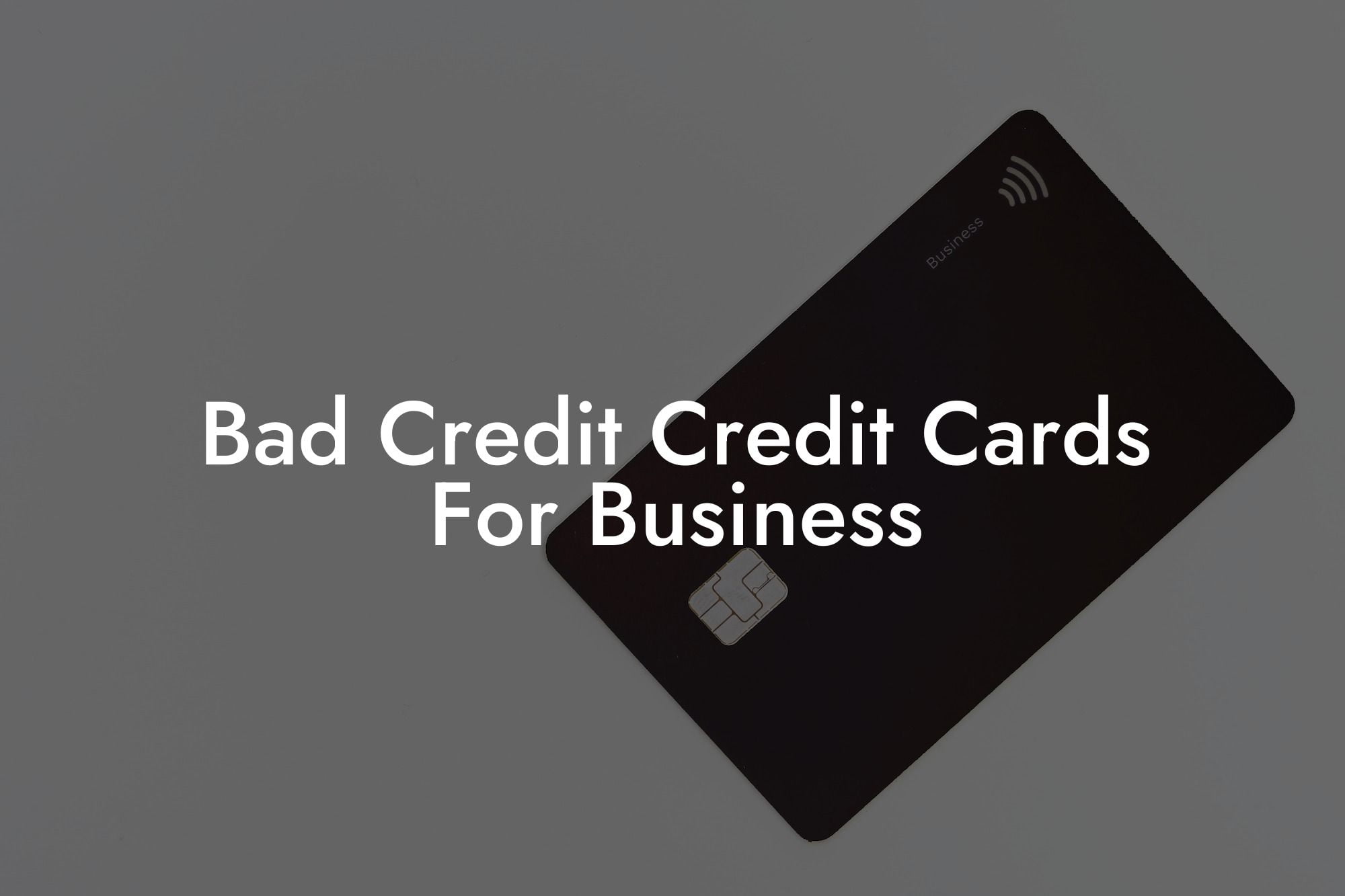Bad credit can feel like the end of the world for any business owner. If you've struggled with credit issues in the past, applying for a business credit card might seem impossible. But fear not! There are options specifically designed to help business owners rebuild credit and reposition themselves on the path of financial success. In this article, we'll explore the ins and outs of bad credit credit cards for business, highlighting reputable options and showing you how they can benefit your bottom line.
Quick Links to Useful Sections
Bad Credit Credit Cards For Business Table of Contents
What are Bad Credit Credit Cards for Business?
What are Bad Credit Credit Cards for Business?
Bad credit business credit cards are financial products designed specifically for business owners with less-than-stellar credit scores. These cards typically come with higher fees and interest rates than traditional business credit cards, which is the price you pay for the opportunity to rebuild your credit. But don't let that discourage you—responsible use of a bad credit credit card can help improve your credit score over time, allowing you to eventually qualify for better financing solutions.
Secured vs. Unsecured Business Credit Cards
When it comes to bad credit business credit cards, there are two primary types: secured and unsecured.
- Secured Credit Cards: These cards require a security deposit, which acts as collateral. Your credit limit is typically equal to your deposited amount, ranging from a few hundred to a couple of thousand dollars. Secured cards usually have lower fees and interest rates than unsecured cards, but their credit limits tend to be lower. Popular examples include the Wells Fargo Business Secured Credit Card and the BBVA Compass Secured Visa® Business Credit Card.
- Unsecured Credit Cards: These cards do not require a security deposit and may have higher credit limits than secured cards. However, they usually come with higher fees and interest rates to offset the issuer's risk. Examples include the Capital One® Spark® Classic for Business and the Shell Small Business Card.
The Application Process: What to Expect
When applying for a bad credit business credit card, you'll need to provide basic information about your business, such as its name, address, and tax identification number. You'll also need to give personal details, including your Social Security number, income, and employment history. The issuer will then run a credit check to determine your approval odds and credit limit.
Bear in mind that every credit card application you submit results in a 'hard inquiry' on your credit report. Too many hard inquiries can hurt your credit score, so it's essential to compare different cards and only apply for the one that's most likely to accept your application.
How to Use Bad Credit Credit Cards Responsibly
To make the most of a bad credit business credit card and start rebuilding your credit score, follow these simple steps:
- Pay bills on time: Your payment history has a significant impact on your credit score. Set up automatic payments to ensure you never miss a due date.
- Keep your balance low: A high credit utilization ratio (the percentage of available credit you're using) can hurt your score. Aim to keep your balance below 30% of your credit limit.
- Monitor your progress: Regularly check your credit report and score to track your improvements. Mistakes can happen, so dispute any errors you find.
- Graduate to a better card: Once your credit score improves, consider trading up to a card with better perks, lower fees, and lower interest rates.
Bad Credit Credit Cards For Business Example:
Let's say Jane owns a small bakery, and her credit score has taken a hit due to some past financial struggles. She needs a business credit card to buy supplies and manage cash flow, but traditional options are off the table due to her bad credit. Jane decides to apply for the Wells Fargo Business Secured Credit Card. After securing the card with a $1,000 deposit, she receives a credit limit of $1,000.
Jane uses her new secured card responsibly, making purchases for her business while keeping her balance below 30% of her credit limit. She sets up automatic payments to ensure she never misses a bill. Over time, her responsible use of the secured card helps to rebuild her credit score. Eventually, Jane is able to graduate to an unsecured business credit card with better perks, lower fees, and a higher credit limit.
Now that you're armed with the knowledge to navigate the world of bad credit credit cards for business, it's time to take control of your financial future! Remember that responsible use of a bad credit business credit card can help you rebuild credit, secure better financing, and grow your business. If you found this article helpful, be sure to share it with fellow business owners and explore our other informative guides on Flik Eco to continue your financial education journey.













